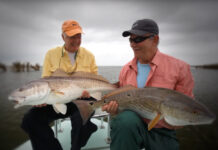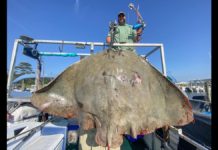A Dunedin fisherman who drowned near Glenorchy in 2020 lost his footing while crossing a river mouth, a coroner says.
Martin Peter Suttie (37) drowned at the mouth of the Buckler Burn in Lake Wakatipu on July 12, 2020.
The police dive squad recovered his body from the lake floor four days later.
In her findings, coroner Alexandra Cunninghame said Mr Suttie was staying at a family holiday home in the township when he decided to go fishing with his partner’s father, Robin Clifford.
The pair arrived at the river mouth, about 700m south of the Glenorchy wharf, at 2.30pm.
Mr Suttie was wearing a full fly-fishing kit, including waders, when he set up in the centre of the gravel delta.
Mr Clifford was about 100m away at the north end of the delta.
About 15 minutes later, he looked up and could not see Mr Suttie, but heard a shout over the noise of the river.
He went over to where Mr Suttie had been standing, but could see no sign of him.
Thinking Mr Suttie must have crossed the river to the south and gone up a creek, he attempted to go in the same direction, but gave up after almost losing his footing.
He called emergency services, but a search by helicopter, Land Search and Rescue and coastguard that afternoon did not find Mr Suttie.
A police report said the river mouth consisted of gravel and sand that fell off very steeply into the lake.
Rainfall records for the day showed the river was running at about three times its normal flow.
Ms Cunninghame found Mr Suttie must have misjudged the risk of crossing the river and lost his footing.
Although an experienced angler, he was not a strong swimmer.
“His fly-fishing kit and lack of swimming ability would have increased the peril he was in.”
It was likely the incident unfolded so quickly Mr Clifford would not have been able to reach Mr Suttie even if he had seen him fall.
The Queenstown Lakes District Council had advised her that if warning signs were installed near the Buckler Burn, the public might conclude many other river mouth areas in the district did not have the same risk, she said.
It was impractical to have signs in every area with similar hazards, and it was more effective to educate the public through the council’s waterways education resources and social media.
She advised anglers to use “great care” in river deltas, particularly after heavy rain.
Credit: Source link






























